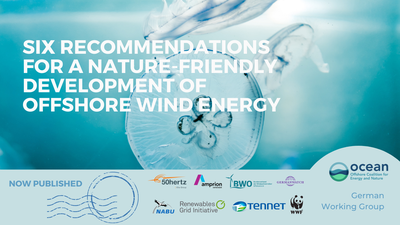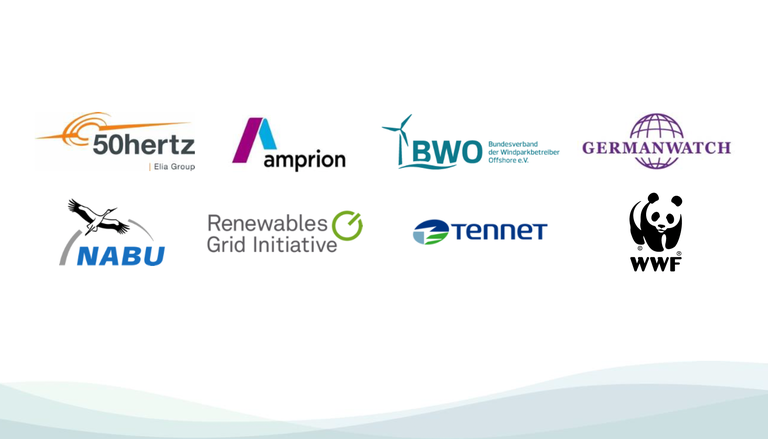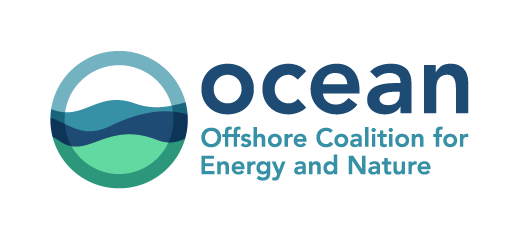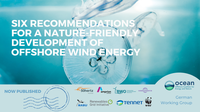OCEaN German WG: Six recommendations for a nature-friendly development of offshore wind energy
 Against this background, the German Working Group of the Ocean Coalition for Energy and Nature (OCEaN) calls on the German coalition partners to anchor the measures elaborated in their paper "Six recommendations for a nature-friendly development of offshore wind energy" into the future policymaking at federal level as part of the coalition agreement. At the same time, the recommendations are of equally great value for the European policy, specifically when it comes to the implementation of the European Climate Act and Europe-wide climate neutrality by 2050.
Against this background, the German Working Group of the Ocean Coalition for Energy and Nature (OCEaN) calls on the German coalition partners to anchor the measures elaborated in their paper "Six recommendations for a nature-friendly development of offshore wind energy" into the future policymaking at federal level as part of the coalition agreement. At the same time, the recommendations are of equally great value for the European policy, specifically when it comes to the implementation of the European Climate Act and Europe-wide climate neutrality by 2050.
OCEaN is a coalition of wind farm operators, transmission system operators, environmental and climate protection organisations that provides an open forum for discussion, where existing information and experiences are assessed and collated, needs for further research are identified and suggestions are made on how to improve planning offshore wind development for the European seas. The German working group consists of eight members: 50Hertz, Amprion, BWO, Germanwatch, NABU, TenneT, WWF and the Renewables Grid Initiative, which acts as the convener and moderator of the group as well as being a founding member.
The following recommendations represent the positions of the signatories and do not necessarily reflect the views of all organisations working together within the OCEaN project:
- In marine spatial designation, priority must be given to climate and nature conservation, and compensation must be ensured.
- To mitigate spatial conflicts, a stakeholder dialogue on co-usage should be initiated.
- Expand and consistently use transparent and effective European cooperation.
- Optimisation of the regulatory framework to achieve climate neutrality targets and enable innovation.
- Provide and use publicly accessible data as a starting point for planning.
- Use concrete measures to accelerate and improve processes.
For more information or in case of questions, please get in touch with stephanie@renewables-grid.eu.
Signing Organisations

Download the full paper in German here
Read the recommendations in English here
Read the document here
